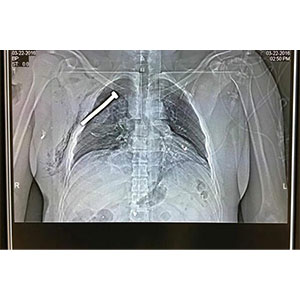As a father of three children, I am especially interested in what’s coming up on our blog this week. I wanted to take today’s post to set the stage for what could be a really great conversation. On Wednesday, we will begin a three-part series on raising children by Dr. Catherine Mueller-Bell. Catherine serves as associate professor of counseling at GRTS, she is a mother to two 20-somethings, and she has become an encouraging friend. Last fall, we highlighted Dr. Mueller-Bell’s work on this blog, and I wanted to follow up on that introduction and ask Catherine to share from her doctoral work on corporal punishment or “spanking.”
Personally, I was raised to see spanking as a valuable means of biblical discipline for small kids. I read books that told me to start forms of corporal punishment as early as 13 months. I was taught (or at least I think this is what I heard) by leaders in my church that one vital thing a parent must do is “break the will” of their children so they will be submissive to authority—especially God’s authority. To fail there is to fail as a parent. I was also taught that questioning the rightness of spanking is to directly question and undermine the clear teaching of scriptures such as Proverbs 13:24.
I’m not sure I would disagree entirely with these things, but I’m not sure I agree entirely either. These statements don’t provide a full enough picture of the challenge of raising children and navigating discipline issues. Obviously, there is more to the story than just “break their will,” and I wonder if that perspective leads parents to try to conquer their kids more than nurture them. When parenting, it is important to provide correction when children are acting out, especially when they are engaging in dangerous behavior, but I’m no longer sure spanking is always the best response. Parents need more options and resources for thinking through this challenge.
In my own experience, spanking has at times seemed effective, and at other times it has failed miserably. There are times I may have used spanking too quickly, as a first choice in punishment, without considering other options, only to later wonder if it really was the best method. This was even more pronounced when my children didn’t respond to spanking in the way I thought they would. It has been disillusioning to watch this method fall short.
Other factors are critical to consider as well. A growing number of children are being diagnosed with autism, quite frequently not until ages 4-8 years old or older. If corporal punishment is a go-to form of discipline at ages 2-4, how do you avoid spanking an autistic child who isn’t being rebellious? Then, there are sensory processing disorders, which cause children to act in ways that can baffle their parents. These and other special needs ought to press parents who utilize corporal punishment to be very cautious.
Here is the bottom line as we engage this topic: There may be several thoughtful perspectives on corporal punishment, and good parents often see it as an effective method of discipline. However, the need for caution may be greater than well-intentioned parents realize. Plus, it might be helpful for some to know there are evangelical interpretations of the “spare the rod” passages that don’t view these teachings as clear, universal commands for spanking—at least not as clearly or as universally as we tend to think. I believe parents have the right to make these decisions, which makes parenting a very weighty journey.
So, the goal with this and the following posts by Catherine is not to shame or produce guilt, but to generate thought and discussion among mothers and fathers, pastors and counselors. If what you’re doing is going well (and you are treating your children with love and respect), keep it up. If you’re looking for additional resources or alternatives when spanking doesn’t seem appropriate, I hope this will get you started.
To that end, I commend you to Dr. Mueller-Bell’s three-post series, starting on Wednesday and continuing next Monday and Wednesday. Whether you see spanking as right or wrong, I believe Catherine’s insights on the health and maturity of a parent/caregiver, the atmosphere of a functional family and the potential risks of spanking are worth considering.
We welcome your comments along the way either on this blog or by email.






